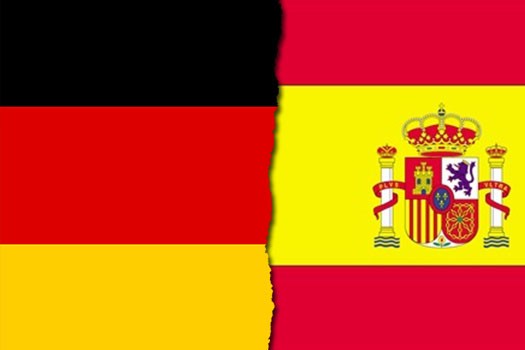Germanic Influences in Spanish Vocabulary
Spanish, renowned for its rich history and cultural tapestry, is a language that bears the imprint of numerous civilizations and languages. While the influence of Arabic and Latin on Spanish is well-documented, the lesser-known impact of Germanic languages adds another layer of complexity to its lexicon. We have already talked about the influence that Arabic has had on Spanish, although it is also common to find words that come from other nearby languages such as French or English. Today, we embark on a journey to uncover how German has woven itself into the fabric of Spanish vocabulary, leaving behind intriguing linguistic traces that tell stories of historical encounters and cultural exchanges.
1. “Bigote” – A Knightly Heritage
Many are surprised to learn that the Spanish word for “mustache,” “bigote,” owes its origin to the image of German knights with distinguished facial hair. This connection reflects a historical admiration for the valor and appearance of these knights, whose exclamation “Bei Gott!” left an indelible mark on Spanish vocabulary.
2. “Blanco” – From Germanic “Blank”
The straightforward Spanish word for “white,” “blanco,” shares its roots with similar terms in Romance languages but ultimately derives from the Germanic word “blank,” meaning empty. This linguistic evolution showcases how meanings can shift as words travel across cultures and time.
3. “Brindis” – A Gesture of Offering
When Spaniards raise their glasses for a toast, they participate in a ritual that traces its etymology back to Germanic origins. The Spanish term “brindis” stems from the German phrase “(Ich) bring’s dir,” emphasizing the act of offering something in celebration or gratitude.
4. “Kinder” – Across Continents
In Latin America, the term “Kinder” is familiar to many, referring to a nursery school or kindergarten. This word finds its roots in the German “Kindergarten,” highlighting the global influence of German educational concepts and practices.
5. “Kitsch” – Embracing Sentimentality
While Spanish has its own term “cursi” for describing something as tacky or overly sentimental, the German word “kitsch” encompasses a broader range of meanings, reflecting a shared sentimentality that transcends linguistic boundaries.
Conclusion
The Germanic influence on Spanish vocabulary offers a fascinating glimpse into the interconnectedness of languages and cultures. From knights with mustaches to educational philosophies, these linguistic borrowings enrich the Spanish language with diverse meanings and historical resonances. Exploring these connections not only deepens our understanding of Spanish but also underscores the dynamic nature of language evolution.
Discover More with Jaleo
If you’re captivated by these linguistic connections and eager to delve deeper into Spanish language and culture, consider joining our group Spanish classes or scheduling individual sessions. Whether you’re a beginner or looking to refine your language skills, we invite you to explore the mosaic of Spanish with us. ¡Hasta pronto!











